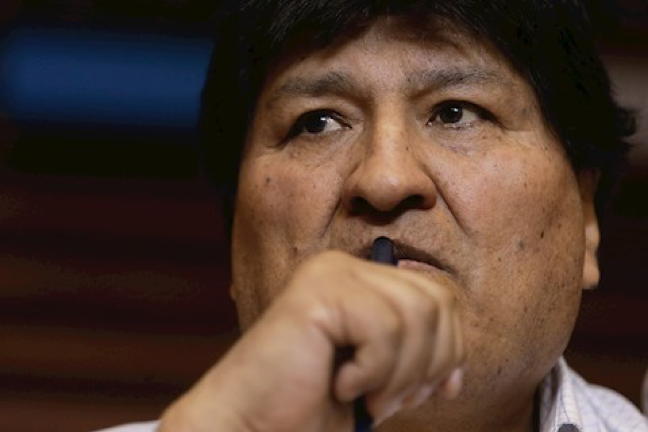
Bolivian Court Nullifies Arrest Order for Morales on Terrorism Charges
October 27, 2020 - Original article: Latin American Herald Tribune
LA PAZ – A Bolivian court has annulled several elements of the court proceedings for alleged crimes such as terrorism and sedition against former Bolivian president Evo Morales, among them an arrest order and indictment, the former leader’s attorney, Wilfredo Chavez, told EFE on Monday.
The legal proceedings against the interim government of Bolivia “remains at square one” regarding Morales because “the regular procedures of international legal communication have not been carried out” to notify Morales or call him to testify, the lawyer said.
Last Saturday, a court hearing was held that considered questions such as the harming of Morales’ rights in the legal process opened against him in November 2019.
Chavez mentioned that he filed a motion of habeas corpus before a constitutional court to complain that “they have absolutely harmed all the rights connected with liberty, defense and due process” and that the court case against the former president was a “deliberately political” action.
One of the main arguments put forward by Morales’ defense was that the former leader was notified by edict in Bolivia without the possibility to defend himself or testify and, thus, “the judge … decided to nullify all the elements,” the lawyer said.
The measures involving the reversal of the indictment and arrest order also resulted in the cancellation of the hearing for Morales set for Tuesday in La Paz, a proceeding at which prosecutors had been prepared to have him held in contempt, Chavez said.
The charge against Morales for terrorism and sedition was levied by the Bolivian Government (or Interior) Ministry in November 2019, shortly before Jeanine Añez assumed power on an interim basis in La Paz and when Morales had fled to Mexico, where he remained for a time before traveling to Argentina, where he now resides.
The accusation was based on a video in which an unseen speaker said to be Morales incites the blockading of cities in Bolivia, although organizations like Human Rights Watch have considered this insufficient proof given the gravity of those crimes.
“For my part, I have complied,” said Chavez regarding his legal obligations, leaving it up to Morales whether or not to return to Bolivia, since certain other legal proceedings against him remain under way.
The decision of the judge comes after the election victory of Morales’ party, the Movement Toward Socialism (MAS), last Friday – a win proclaimed by the country’s top electoral entity – but a change of regime is not scheduled to occur until Nov. 8, when Añez will be replaced by MAS candidate Luis Arce.